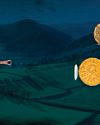
The long joint history of India and England is far from unfamiliar. Much of it is understood through the lens of two centuries of British colonialism, from the mid-18th century to Indian independence in 1947. Colonised first by the East India Company (EIC), India was later celebrated as the "jewel in the crown" of the British empire. In scholarly texts as much as popular writings, England features as imperial master over a subordinated India. Even in the period prior to colonisation, England is seen as a coloniser-in-waiting, with the EIC framed as an empire builder. Yet this understanding is far from accurate, and David Howarth's new book provides a compelling and necessary corrective to that long-held view.
Howarth does what many a historian has failed to do: places a critical lens on the story of England and India that pushes back on colonial narratives, particularly in the early period. He clarifies that the EIC began as an unstable entity focused exclusively on trade. Far from being early proponents of colonial mastery, these first travellers were merchants in pursuit of eastern trade. As Howarth observes of the EIC: "How wrong it is to think there was something inevitable about its socalled rise as a systematic monolith that was somehow predestined to govern India."
Adventurers' 16 chapters follow a broadly chronological arrangement while thematically traversing the history. Howard explores the EIC's foundation and evolution, from its turbulent beginnings as a joint stock company to later struggles with the British crown as the nation headed towards civil war. We are also introduced to England's key European competitors in Asia, the Portuguese and the Dutch. Anglo-European trading efforts across key Asiatic regions are explored, covering the Ottoman, Safavid and Mughal empires, Japan and the "Spice Islands" of Indonesia.
Diese Geschichte stammt aus der February 2023-Ausgabe von BBC History UK.
Starten Sie Ihre 7-tägige kostenlose Testversion von Magzter GOLD, um auf Tausende kuratierte Premium-Storys sowie über 8.000 Zeitschriften und Zeitungen zuzugreifen.
Bereits Abonnent ? Anmelden
Diese Geschichte stammt aus der February 2023-Ausgabe von BBC History UK.
Starten Sie Ihre 7-tägige kostenlose Testversion von Magzter GOLD, um auf Tausende kuratierte Premium-Storys sowie über 8.000 Zeitschriften und Zeitungen zuzugreifen.
Bereits Abonnent? Anmelden

The Victorians' cocaine habit
In the 19th century, a magic new drug took the medical community by storm, riding a wave of scientific endeavour.

Tower of light and dark
The gold-tipped monument that towers above Bath is an architectural jewel and a visceral reminder of the evils of slavery. PAUL BLOOMFIELD visits the newly restored haven built by the wealthy outcast William Beckford

How Britain found its frequency
When radios first appeared in British homes in the early 20th century, one thing soon became clear: domestic life would never be the same again. Beaty Rubens tracks Britons' reaction to this extraordinary new technology via seven cartoons

There are only a handful of survivors left who can say what happened
I WAS INTERVIEWING AN ALMOST 98-YEAR-OLD man about his memories of the Second World War this week.

THE KING LOST KINGDOM
Battered by the Vikings, outshone by King Alfred, Mercia has long been painted as the also-ran of the Anglo-Saxon world. Yet, writes Max Adams, this mighty Midlands kingdom was at the very heart of the emergence of England

Donald Trump has retaken the US presidency, repeating his vow to 'Make America Great Again'. But he's not the first to wield such a slogan. Back in the 1980s, Ronald Reagan stood for election with the same promise.Did he deliver?
Donald Trump's recurring battle cry \"Make America Great Again!\"- taps into a powerful sense among many Americans that life was better in the old days.

"In times of political volatility, it's more vital than ever that we tell women's stories"
What impact has recent instability around the world had on the study of women’s history? Does our desire for strong female role models risk erasing complexity? And whose lives are still overlooked? Ahead of Women’s History Month, ELLIE CAWTHORNE spoke to three historians about the state of the discipline

Five shocking tales from Britain's royal palaces
Royal residences have been a hotbed of drama, violence and intrigue down the centuries, as Kate Williams reveals

Why, the villagers wondered, were they completely green?
The story of the otherworldly children of Woolpit has long been treated as folklore - but, as John Clark explains, the tale may not be as fanciful as it seems

We are witnessing the biggest gathering of people in world history
I'M SURE, LIKE ME, READERS HAVE BEEN BOTH gripped and saddened this last month by the pictures of India's Kumbh Mela, the biggest pilgrimage in the world.